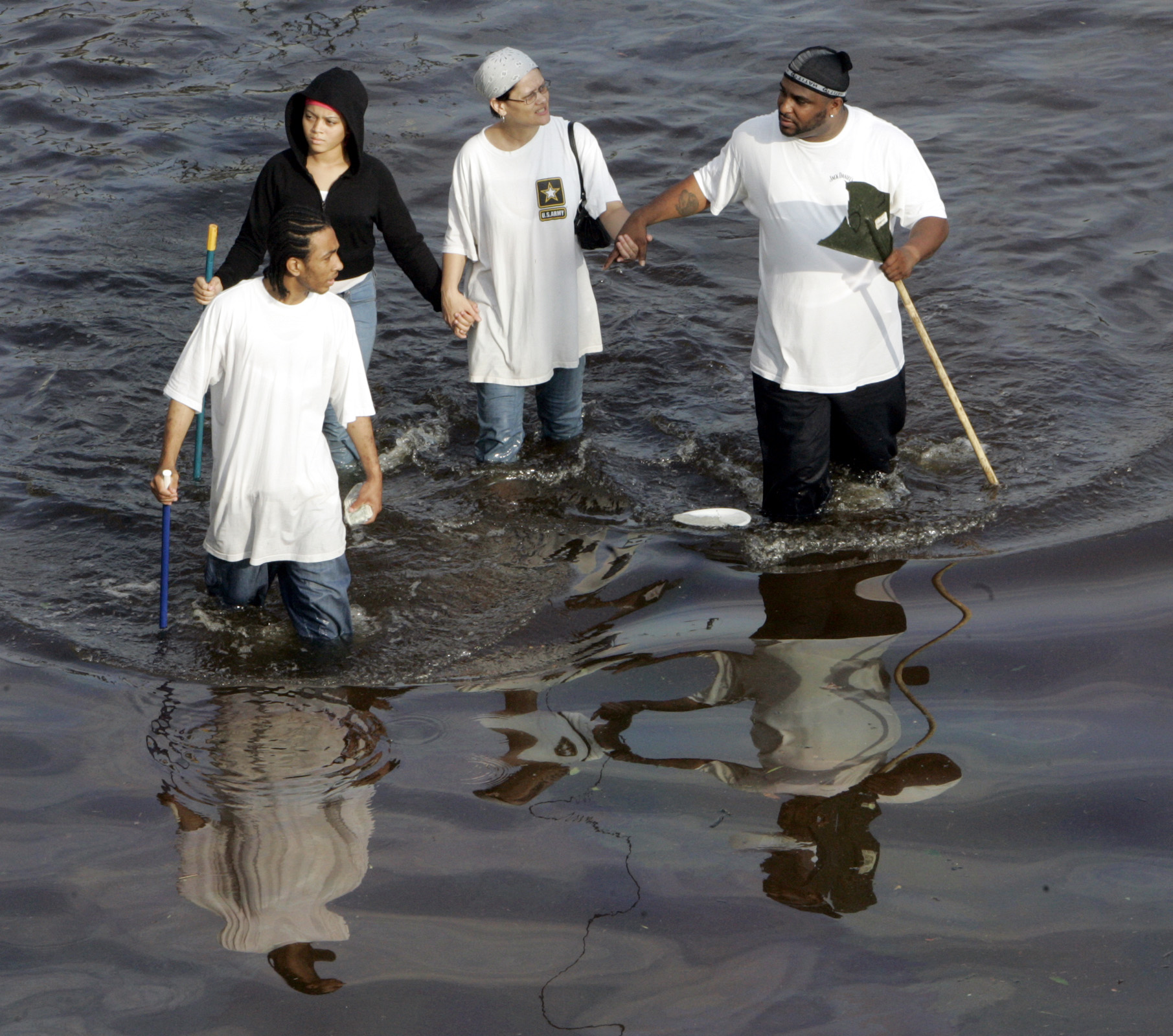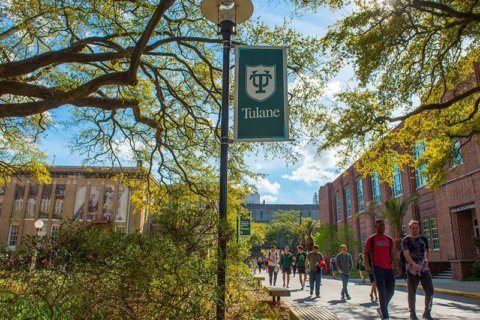WASHINGTON– When news that a hurricane named Katrina was forming in the Gulf of Mexico reached New Orleans resident Jason Hawkins, things didn’t feel all that different to him.
“We took very little with us,” Hawkins said. “We thought it would be just like every other hurricane before. We would leave, go drink for a day, come back, and everything would be back to normal.”
But as he watched the levees break, reality set in.
“It was hard to watch, but we gathered around and watched The Weather Channel and watched the storm hit. It didn’t feel that different from other hurricanes that had hit the city,” Hawkins said. “It was when the levees broke and flooding started– that’s when we knew something was going to be different, and then it became too hard to watch.”
Hawkins moved to New Orleans in 1999 to attend Tulane University. During his time as an undergraduate he fell in love with the city of New Orleans, and after graduation he decided to make New Orleans his home.
In late August 2005, Hawkins was living in the Uptown neighborhood of New Orleans and doing freelance TV and film production work.
“Over the four years I attended Tulane and the few years after that I lived in the city, we evacuated the city many times for hurricanes, always with the understanding that it wouldn’t do much damage and that we would come back. There were a lot of near misses,” Hawkins said. “Katrina felt similar in the beginning, but it also felt like it had a cloud hanging over it, and it felt a little different. A little ominous.”
Just hours before the storm’s projected landfall, Hawkins decided to err on the side of caution and leave the city. Hawkins headed west to Texas with some friends to wait out the storm.
What he didn’t realize was that he would end up waiting three months before he’d even be allowed back inside the New Orleans city limits.
In 2005, Facebook was just getting started. Twitter did not even exist. There were no smartphones. The way we communicated with one another was different. In the days and weeks after the storm, Hawkins says it was difficult to contact friends and loved ones. It took weeks before he knew that his friends, colleagues and co-workers had made it to safer ground. “We didn’t know what was going on. What was flooded? What wasn’t? How many people were still there?”
After about a week, Hawkins and his friends started driving around the country, dropping people off at home. Eventually, that led Hawkins to Montgomery, Alabama, where he spent some time helping others who had been impacted by the storm.
“I volunteered at the Red Cross center that was mainly helping Katrina refugees. They were helping people fill out paperwork so they could get funds to help them get by.”
Initially, Hawkins did not tell anyone at the center that he, too, was a Katrina refugee. But someone eventually found out and made sure he filled out that same paperwork.
“After that, I had a decision to make,” Hawkins said. “I could stay in Alabama,or I could come live with my brother, his wife, and their dog in Arlington, Virginia.” On his way up to D.C., he called a temp agency to secure some work. Hawkins stayed with his brother and made ends meet through temp work until he was given the green light to go back to New Orleans in November 2005.
“Coming into the city was very surreal. We came in from the east and everything was dry, but you could see this layer of dust and you could tell where everything had flooded,” Hawkins said. “But we were actually lucky. We were in one of the few areas of Uptown that was above sea level, and we were on the second floor, but we still knew it wasn’t going to be a piece of cake.”
Most of the things Hawkins had left behind were ruined by moisture and mold, and were unsalvageable.
“New Orleans felt a bit like a war zone,” Hawkins said. “We got stopped to have our IDs checked a few times. There were not a lot of people out on the streets. There were a lot of Army-issued Humvees driving around and the people driving them were very well-armed.”
Hawkins said that by the time he made that trip, he knew that the visit was just to get his stuff.
“At some point it sort of dawned on me that this was an opportunity to start something new. I had started temping in D.C. and that had turned into a possible job opportunity. I didn’t really know what my future was in New Orleans so it just became the smarter choice to stay up here, find a place, and move on from there.”
Ten years later, that temp job did, in fact, turn into a full-time job, and Hawkins is living in Alexandria.
“I’m amazed it’s been 10 years,” Hawkins said. “I can’t believe I’ve been here for 10 years. It was such a life-altering event. It changed how I view a lot of things. It changed how I look at possessions. It changed my outlook on life.”






